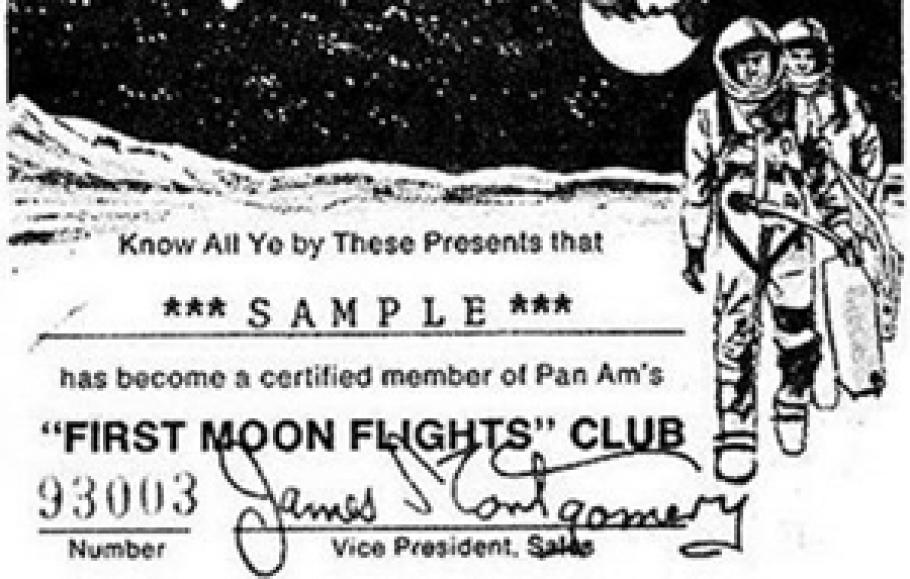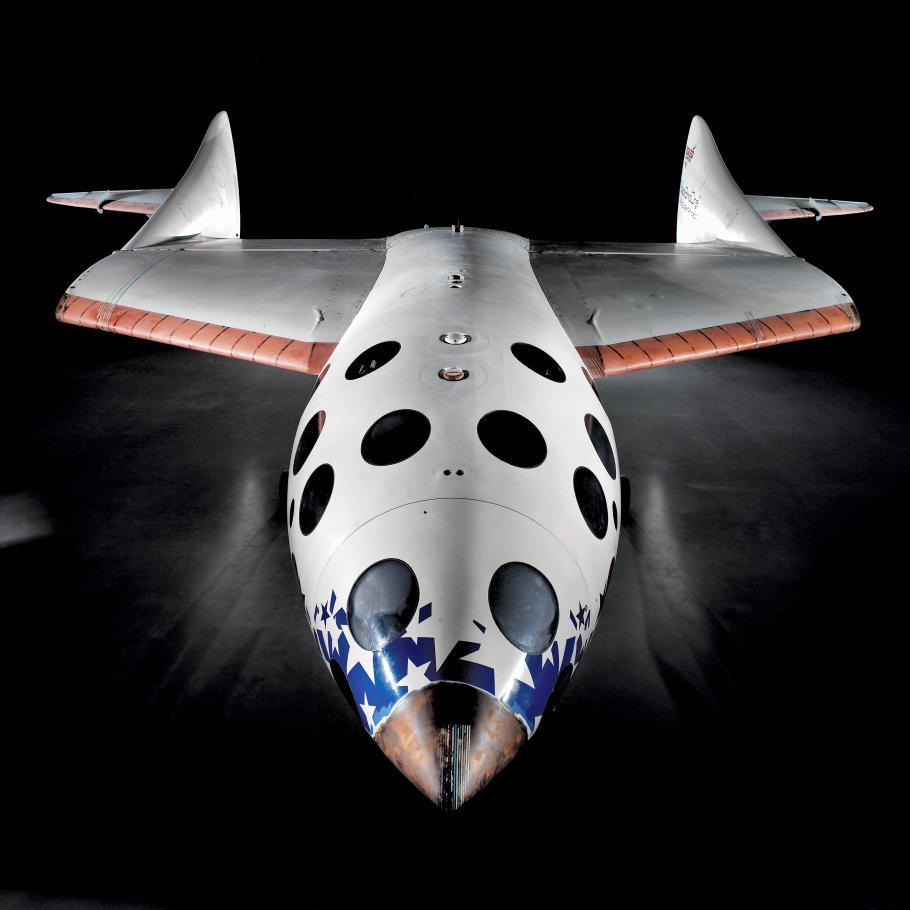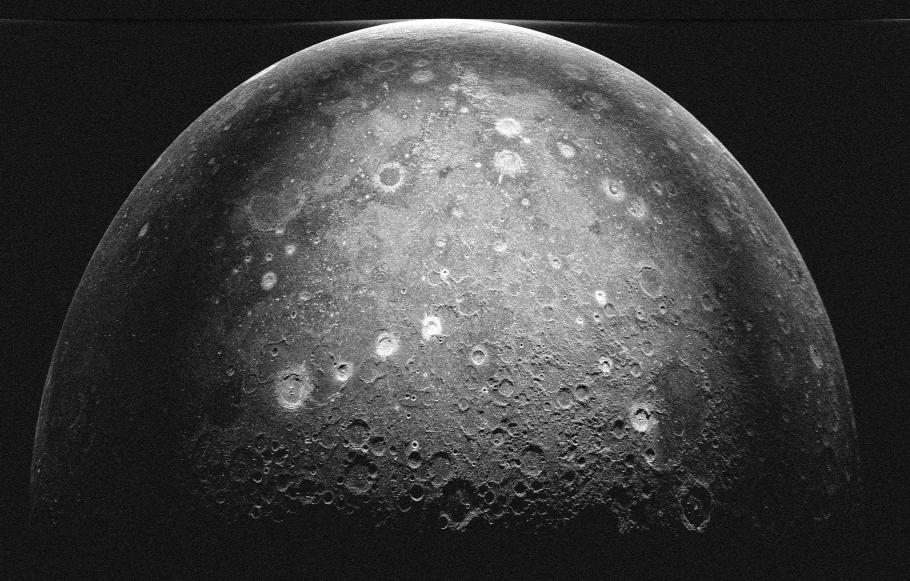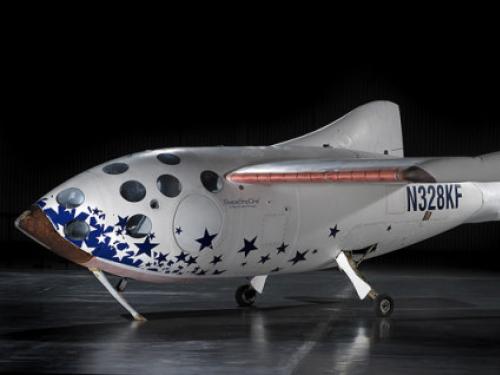
Were You a Member of the “First Moon Flights” Club?
Jul 31, 2015
By Tracee Haupt
The Smithsonian would like to add to its national collection a Pan American Airways (Pan Am) “First Moon Flights” Club card as an example of early enthusiasm for space travel. When the renovated Boeing Milestones of Flight Hall is completed in July 2016, one of the artifacts that will be featured will be SpaceShipOne, winner of the Ansari X Prize in 2004 as the first privately developed, piloted spacecraft. But long before 2004, there were those who had hoped spaceflight could someday be accessed just by purchasing a ticket. If you own one of these cards, and it is in excellent condition, we invite you to fill out our object donation form. Between 1968 and 1971, Pan Am issued over 93,000 “First Moon Flights” Club cards to space enthusiasts eager to make a reservation for the first commercial flight to the Moon. Issued at no cost, the membership cards were numbered according to priority. The Club originated from a waiting list that is said to have started in 1964, when Gerhard Pistor, an Austrian journalist, went to a Viennese travel agency requesting a flight to the Moon. The agency forwarded his request to Pan Am, which accepted the reservation two weeks later and replied that the first flight was expected to depart in 2000.
Image of the nose of SpaceShipOne, which completed the first manned private spaceflight in 2004.
Pan Am began actively promoting the waiting list on radio and TV spots after the successful missions of Apollo 8 in 1968 and Apollo 11 in 1969. The company also got a boost from the appearance of the fictional Pan Am Orion II space plane in Stanley Kubrick’s film, 2001: A Space Odyssey (1968). As excitement for the list grew, the Club was created to capitalize on its popularity. In a letter to its new members, Pan Am admitted that there were details to work out before the first flight could depart, and playfully warned, “Fares are not fully resolved, and may be out of this world.” The “First Moon Flights” Club eventually included members of every state in the U.S. and 90 countries including such geographically diverse areas as Ghana, Nicaragua, Iceland, New Zealand, Pakistan, and Ecuador. Famous members of the club included Ronald Reagan, Barry Goldwater, and Walter Cronkite. Pan Am stopped accepting new members to the club in 1971 when financial troubles made it difficult for the company to keep up with new requests. As late as 1989, Pan Am insisted that it would eventually redeem the memberships, but the company declared bankruptcy in 1991, turning the membership cards into collector’s items. The “First Moon Flights” Club was never able to send any of its members to the Moon, but for many the desire to travel beyond Earth remained.
In recent years, new companies have taken up the challenge, working to make space travel safe and affordable for future tourists. To tell that story, the Museum is seeking to acquire by donation a well-preserved “First Moon Flights” Club membership card. One donated card will be chosen, and a photographic scan of that card will appear in the Boeing Milestones of Flight Hall on the label for SpaceShipOne. Paper artifacts become fragile with age and cannot be exhibited without risking the discoloration that comes from light exposure, so the card itself will be accessioned as an artifact into the Museum’s collection to ensure that it will remain preserved for future generations. This is a unique opportunity to make your name a part of the historical record at the Smithsonian Institution. Did you dream of flying into space with Pan Am? Let us know!
Related Topics
You may also like
Related Objects
We rely on the generous support of donors, sponsors, members, and other benefactors to share the history and impact of aviation and spaceflight, educate the public, and inspire future generations. With your help, we can continue to preserve and safeguard the world’s most comprehensive collection of artifacts representing the great achievements of flight and space exploration.



